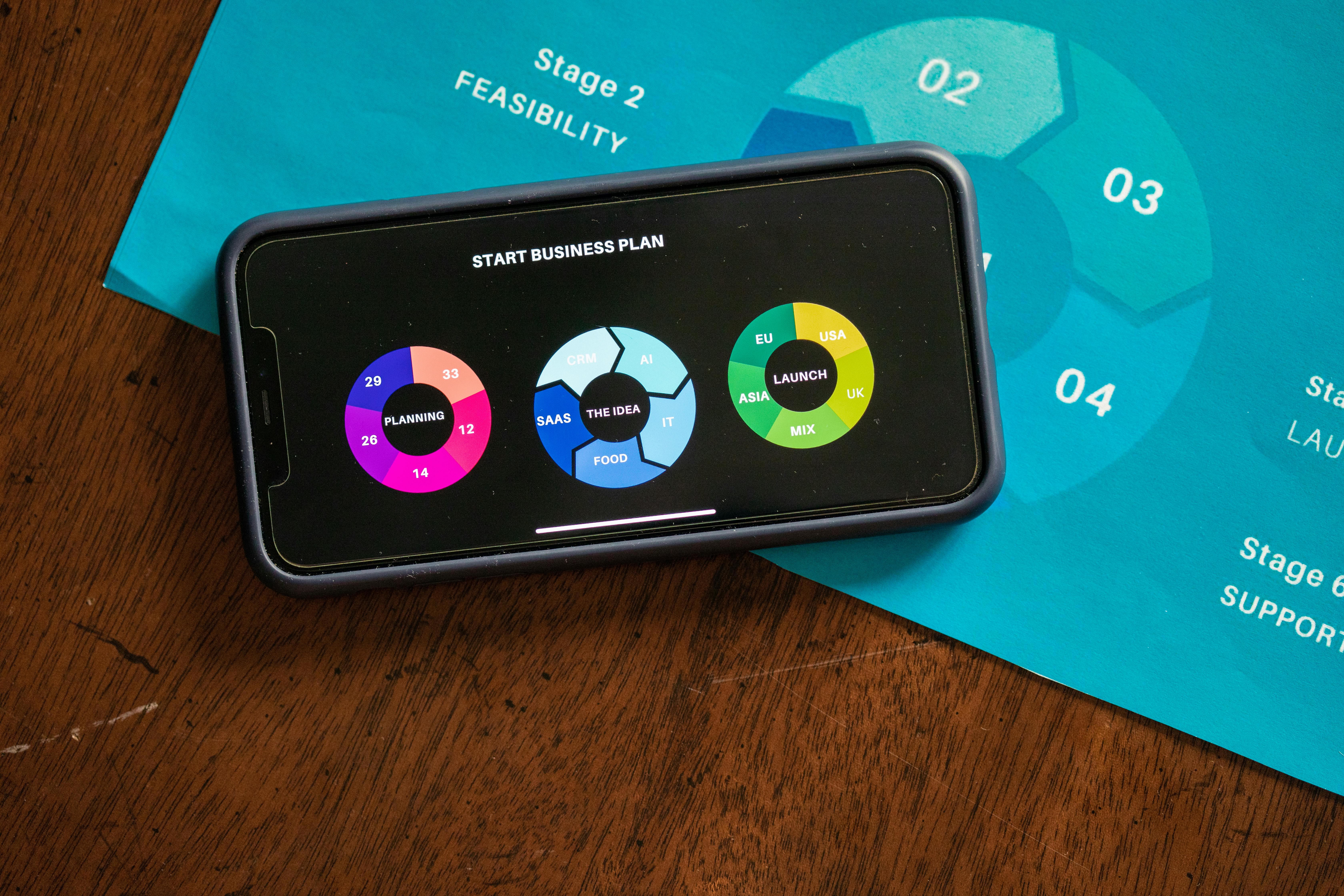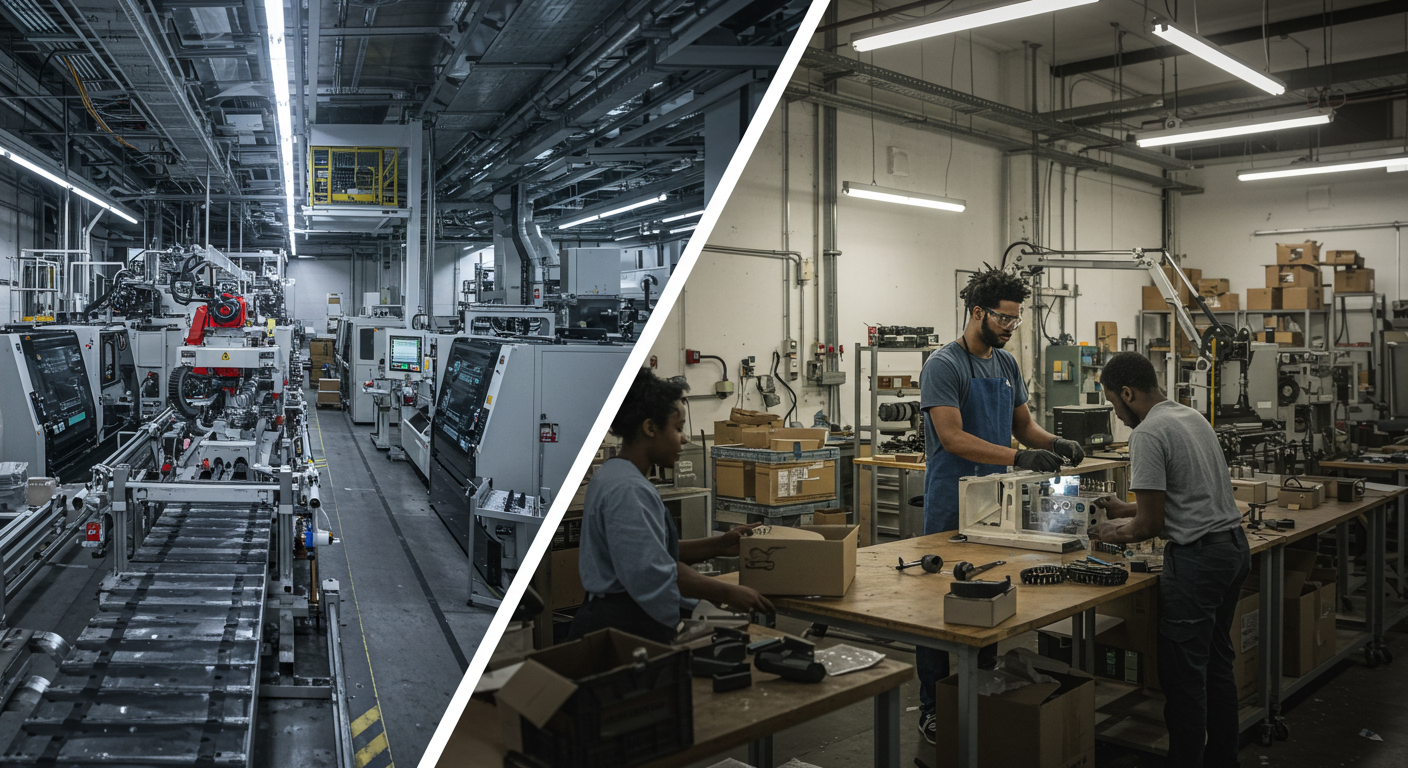Why SaaS Startups Fail in Africa: Lessons for Nigeria
by Samson Odo, Co-Founder / CTO

In the U.S.,The Software as a Service (SaaS) is a golden ticket. Build a tool, slap on a subscription and scale to billions. Think Slack, Zoom, or Salesforce. But in Nigeria and across Africa, that playbook is a one-way ticket to failure. The continent’s economic and infrastructural realities: low digital payment adoption, unreliable internet, and cash-strapped SMEs make the U.S. SaaS model a tragic mismatch.
At Nodeshift, we’ve seen the graveyard of African SaaS startups. It's obvious that Copy-pasting Silicon Valley’s model doesn’t work. Here’s why - and how we’re building differently.
The U.S. SaaS Model Meets African Realities
The U.S. SaaS model thrives on high subscription fees, seamless digital payments, a robust credit system and reliable internet. In Nigeria, those foundations don’t exist at scale.
- Internet penetration is just 49.5% — with frequent disruptions.
- Digital payments have only scaled to 20% adoption across Africa.
- SMEs are the backbone of Nigeria’s economy, but most operate on thin margins. Recurring fees don’t fit the cash flow reality as most people simply can't afford them.
Failed startups prove the point. Carpoola, a ride-sharing SaaS, mimicked Uber’s subscription model but collapsed in 2019 due to low adoption and payment friction. Vendease, a food procurement SaaS backed by YC Combinator, had to pivot after growth stalled — it couldn’t scale on subscriptions alone.
Over 60% of African startups fail within three years, and SaaS ventures aren’t exempt.
Foreign SaaS Giants Play by Different Rules
Global SaaS companies like Netflix and YouTube Premium thrive in Nigeria—but only because they can afford to slash prices. If they were local startups? They’d be dust.
How They Price for Nigeria (Exchange rate: ≈₦1,600/$ as of March 2025)
| Service | U.S. Price | Nigeria Price | Discount |
|---|---|---|---|
| Netflix Premium | $29.99 (~₦47,984) | ₦7,000 (~$3.38) | 89% |
| YouTube Premium | $13.99 (~₦22,384) | ₦1,100 (~$0.69) | 95% |
| Coursera | $50 (~₦80,000) | ₦25,000 (~$15.6) | 68% |
| Starlink | $120 (~₦192,000) | ₦38,000 (~$23.75) | 80% |
Netflix, with 270 million global subscribers, can subsidize a ₦7,000/month plan in Nigeria, but a Nigerian SaaS startup can’t afford to price that low.
Starlink, even at ₦38,000/month, works because it’s funded by global operations. If it had to bootstrap here, it wouldn’t survive.
For a local SaaS startup, there’s no billion-dollar cushion.
Deep discounts aren’t a growth hack—they’re a privilege of global scale.

Why Nigerian SaaS Startups Can’t Survive the U.S. Way
Imagine a Nigerian SaaS startup charging U.S.-style rates—say, $50/month (~₦80,000). The average monthly income is just ₦124,000 according to TechNext, 2023. That’s over 60% of earnings. Even if it was a subscription to a timeshare property in heaven, it still wouldn't scale.
Even at ₦38,000/month (Starlink’s rate), most businesses still won't bite. It just makes more sense to use the ₦1,000-₦5,000/month data plans offered by Local ISPs. They're not great, but affordable.
🚫 Subscription models misfit local spending habits
🚫 Low digital adoption makes scaling hard
🚫 Unstable infrastructure disrupts cloud services
In the U.S., a robust credit system means people can subscribe to just about anything without thinking. Buy now, worry later, sometimes months or even years down the line. Disposable income is often just credit in disguise.
In Nigeria, every penny spent has to be earned first, making high recurring fees a much tougher sell.
A Nigerian AI chatbot startup collapsed in 2022 because its subscription model lost out to free, open-source alternatives. Another recruitment SaaS failed when SMEs chose manual hiring over paying a monthly fee.
The U.S. model assumes scale, stability, and widespread digital payments. Nigeria has none of these.
Nodeshift’s Playbook: SaaS, But Built for Africa
At Nodeshift, we don’t chase the subscription dream. We build for the reality.
Our ecosystem is painstakingly designed for African businesses, not U.S. playbooks.
Top tip
The future of African SaaS isn’t about forcing subscriptions—it’s about creating solutions that fit.
🔹 Flexible Pricing – Not rigid subscriptions, but scalable models suited to cash flow realities.
🔹 Seamless Local Payments – We prioritize payment methods SMEs actually use.
🔹 Designed for Low-Connectivity Environments – Our solutions are built to work even when the internet doesn’t.
🔹 Cost-Effective Development – Lean, efficient product builds that avoid unnecessary overhead.
🔹 Lean Scaling Strategies – Growth models that don’t rely on massive upfront funding but instead scale sustainably.
Where Netflix slashes to ₦1,200 to survive, we build affordability in from the start. Where Starlink’s ₦38,000 reflects global muscle, our pricing reflects local grit.
We don’t have infinite treasuries to offer huge discounts, so we scale so efficiently that we won’t need to.

The Future: SaaS, African-Style
The U.S. SaaS model is a siren song. Tempting, but deadly in Africa.
Foreign giants survive by adapting, but startups born here can’t copy-paste and pray.
At Nodeshift, we’re proving there’s a better way:
✅ Integration over isolation
✅ Practicality over hype
✅ Local-first solutions over imported dreams
To survive in Nigeria, it’s important to build value around local economies and develop solutions that stick — not just chase subscription revenue
